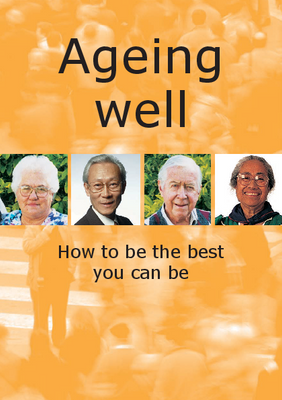Ageing well: How to be the best you can be - NZ Sign Language - HE1148NZSL

General health and eldercare information for older people. Includes mobility and exercise, nutrition, sleep, the senses (hearing, sight, smell), oral hygiene, foot care, skin care, screening for cancer, bladder control, drugs (medicines, alcohol, smoking), sexual relations, keeping warm in winter, and safety and security in and outside the home.
The full resource:
View the full NZSL translation for this resource here (or by segment, immediately below this first clip)
This New Zealand Sign Language (NZSL) translations also offer audio, for the purpose of viewing together with someone who may not understand sign language. The audio is paced to align with each section of the NZSL messaging.
Ageing Well NZSL Translation One: Introduction and Keeping mobile
Ageing Well NZSL Translation Two: Eating well and Sleep
Ageing Well NZSL translation Three: Sight, Smell, Oral hygiene, Foot care and Skin care
Ageing Well NZSL translation Four: Screening for cancer, Bladder control
Ageing Well NZSL Translation Five: Drugs, Medicines, Alcohol, Smoking and Sexual relations
Ageing Well NZSL Translation Six: Keeping warm and well during winter, Safety inside and out of the home